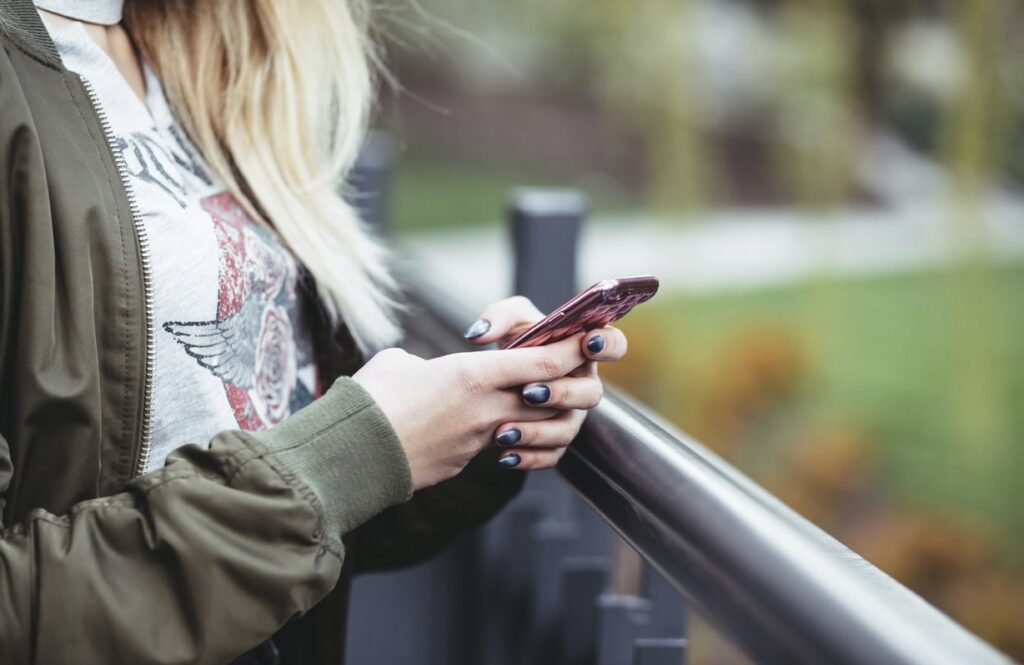Cutting down social media usage to just 30 minutes per day may hold the key to reducing feelings of anxiety, depression, loneliness, and FOMO, according to researchers.
This proved true for college students who took part in a recent study and successfully self-imposed limits on social media, sometimes managing to squeeze in a little extra time, over a two-week period.
Lead author Ella Faulhaber, a doctoral student in human-computer interaction at Iowa State University, explained that the results were somewhat counterintuitive. Many people rely on social media to manage stress, find entertainment, and stay connected, so the typical perception is that social media serves as a coping mechanism.
However, the participants in the study reported interesting insights after limiting their social media usage. They discovered better sleep, stronger connections with people in real life, and a sense of busyness with other activities.
This study aligns with recent warnings from the U.S. Surgeon General and the American Psychological Association about the negative impact of excessive social media use on the mental health of young people.
Faulhaber’s team worked with 230 college students, asking half of them to restrict their social media time to 30 minutes per day and sending them daily reminders.
At the end of the study, these students experienced significantly lower levels of depression, anxiety, loneliness, and FOMO compared to the control group, which was not asked to limit their social media usage.
Moreover, the self-limiting group also showed a more positive outlook on life. Even those who didn’t strictly adhere to the 30-minute limit still experienced psychological benefits.
Faulhaber emphasized the importance of personal accountability in self-limiting social media usage. By creating awareness, setting timers, and becoming conscious of one’s usage, individuals can better control their scrolling habits. It’s crucial to acknowledge that most social media platforms are designed to foster mindless scrolling.
Faulhaber referred to this era as the “age of anxiety,” highlighting that social media interactions or video calls cannot fully replace in-person contact.
Other research suggests that actively engaging with social media, such as commenting on posts or sending direct messages, has fewer negative consequences compared to passive scrolling and consumption.
The takeaway from this study is that limiting social media usage is indeed achievable and can lead to improved well-being.
Dr. Howard Liu, chairman of the American Psychiatric Association’s Council on Communications, reviewed the findings and emphasized that while social media may offer a sense of connection, it cannot fully replace real-life interactions.
The fear of missing out often makes it challenging to put down social media once logged on, and Liu appreciated the practical experiment conducted in this study. The 30-minute limit was reasonable and easy to remember, which he found positive.
Overall, the results indicate that people tend to be happier when they reduce their social media consumption, underscoring the significance of this finding.
While there may be a shortage of therapists to meet the mental health needs of college students, this study serves as an example of preventive measures that can be taken.
Liu suggested that implementing a buddy system could be effective in supporting social media limitations as a collective effort.
By cutting back on social media, individuals can make time for activities like exercise, which has been proven to reduce anxiety and benefit brain health. Engaging in outdoor exercise further enhances mental well-being.
Additionally, spending the reclaimed time on fostering real-life connections, such as meeting up with roommates for coffee or reaching out to loved ones over the phone, can be a valuable use of time.
Practicing mindfulness meditation, even for just a few minutes of closing the eyes and focusing on breathing, can be a beneficial activity.
Liu emphasized the importance of sleep, highlighting that it is a better alternative to late-night scrolling, which disrupts the body’s circadian rhythm due to the exposure to light.
Liu concluded by stating that there are numerous activities that don’t require a significant amount of time and can easily replace social media usage.
The research was published June 14 in the journal Technology, Mind, and Behavior.
Read also
Sex and orgasm before bed can speed up falling asleep, new study
Eating disorder symptoms in men linked to excessive pornography use, new study



